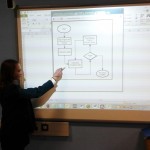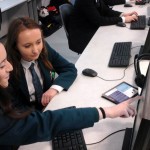Computing
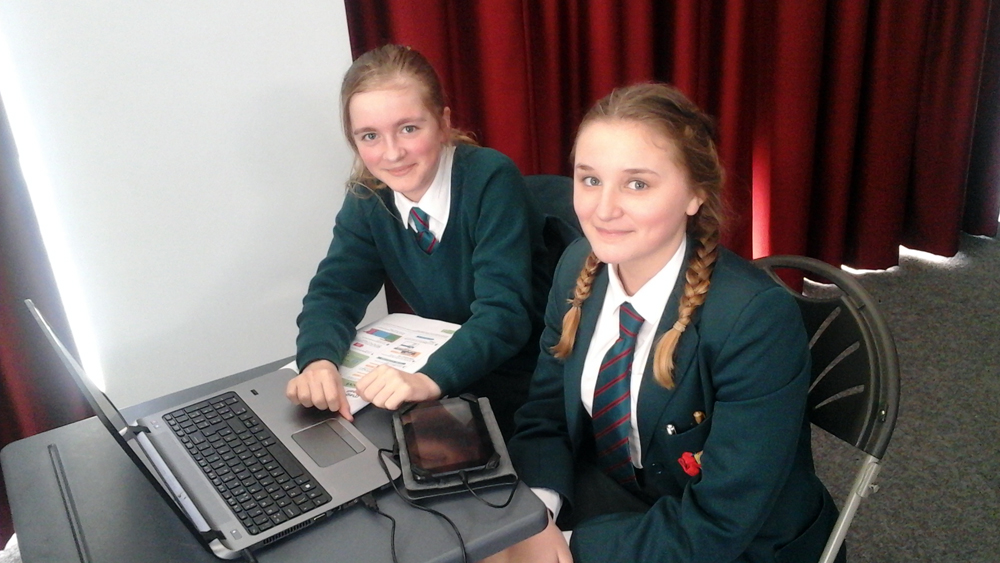
Aims And Vision
The vision of the Computing department is to provide pupils with a broad education and learning experience in the following areas:
- Computer Science – This covers foundation principles and practices of computation and computational thinking, and their application in the design and development of computer systems.
- Digital Technology – This focuses on the creative and productive use and application of technology and computer systems, especially in organisations.
- Digital Literacy – This refers to using technology effectively and in a safe and responsible manner.
The school is well equipped with the technology required in order to deliver a Computing curriculum and allow the use of technology in teaching and learning across the curriculum. There are three purpose-built classrooms, each containing 26 computers connected to the C2K network, along with a dedicated MAC suite and a number of computer “clusters” throughout the school.
We offer the following qualifications and progression routes for pupils:
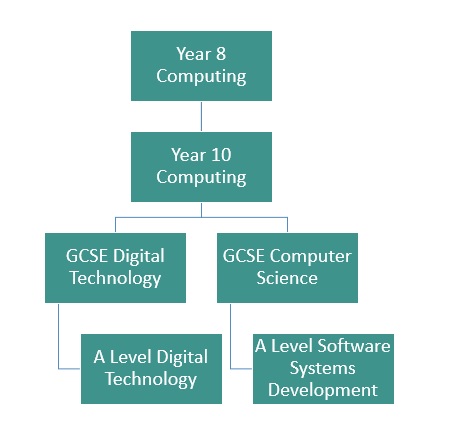
Year 8 Computing
In Year 8, our pupils receive 2 timetabled periods per week of discrete Computing classes. The scheme of work covers the following topics:
Unit 1 – Rules/Setup/Services (Acceptable Use Policy, account setups, familiarisation with school services)
Unit 2 – Online Safety (Advice and guidelines for pupils to ensure safe browsing and interaction when online)
Unit 3– What are computers? (Input/Output/Storage, the major components of any computer, binary)
Unit 4 – Scratch (An introduction to programming concepts through a visual and interactive environment)
Unit 5 – Word Processing Techniques (Managing styles, tables of contents, pagination, text wrapping etc.)
Unit 6 – Movie Maker (Producing a demo movie for a skill learned in PE)
Unit 7 – BBC Microbit
Year 10 Computing
In Year 10 we offer three modules in two periods per week which cover a wide range of skills and concepts in the Computing spectrum. This includes:
Unit 1 – Python programming (An introduction to programming using the language “Python”)
Unit 2 – Graphics Design (Using Photoshop to work with multimedia assets and build a movie-themed poster)
Unit 3– Web Design (Using Microsoft FrontPage to produce a web site for a chosen theme and audience)
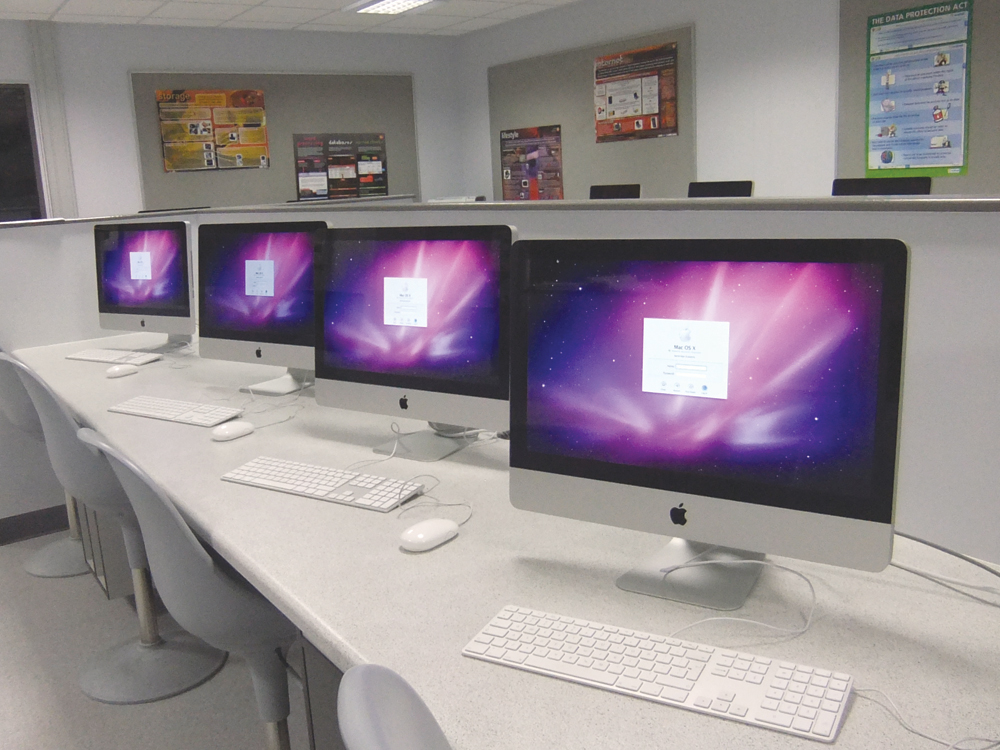
GCSE Computer Science
Students who want to go on to higher education and employment in the field of computer science will find that this course provides a superb stepping stone. This course is well suited to pupils who are interested in being digital developers. Pupils will undertake an examination of core computing concepts such as hardware, software, data representation and computer networks. Pupils also undertake two controlled assessments, one of which requires programming in Python and the other a practical investigation into a current computing topic such as app development using AppInventor.
GCSE Digital Technology
By studying this skills-based course you will develop your aptitude in applications such as spreadsheets, databases, graphics, video, multimedia presentations, web page development. In addition to the skills you will also develop a sound knowledge and understanding of digital technology in a range of contexts. This course is suitable for pupils who see themselves as digital users. The course has one controlled assessment task worth 30% and two examination papers worth 30% each.
A-Level Software Systems Development
This course is tailored for students who have completed GCSE Computer Science and have a strong mathematical background. At AS, pupils will learn how to program in C# and will program an event-driven application such as a quiz or game. At A2, pupils will learn how to program a C# application which connects to a SQL database, for a scenario set by the exam board.
A-Level Digital Technology
This is a natural progression from GCSE ICT and allows pupils to advance their IT skills for use in many careers.
Pupils will:
- develop a genuine interest in digital technology;
- gain an understanding of the system development process;
- gain an awareness of a range of technologies and an appreciation of the potential impact these may have on individuals, organisations and society;
- participate in developing an application while adhering to the system development process;
- develop an understanding of the consequences of using digital technology on individuals, organisations and society, and of social, legal, ethical and other considerations of using digital technology;
At AS there are two examinations of digital technology concepts and then at A2 pupils have the opportunity to produce an IT solution to a problem set by the examination board.
More information on the subject content can be found in the subject choice booklet on the policies/documents page.

